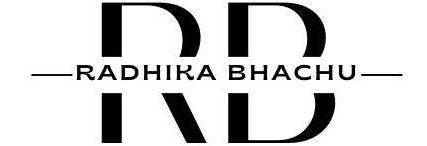This can be done by avoiding heavily-oaked wines or those with a higher alcohol content. This occurs because https://contupseguros.com.br/bookkeeping-services-near-you-reliable-bookkeeping/ alcohol triggers expansion of the blood vessels near you — body surfaces — including the lining of you nose and sinuses. This extra blood flow can lead to temporary swelling and increased mucus production, potentially provoking nasal and sinus congestion. Yes, a small number of people suffer from sulfite intolerance, but these are not the symptoms most people complain about when they say they are intolerant to wine. Instead, those who suffer from sulfite intolerance experience symptoms similar to asthma and allergic rhinitis (sneezing, itchiness, blocked or runny nose).
Why Do My Sinuses Hurt After Drinking?
It doesn’t happen to everyone, but those who do get congested after a glass or two know just how much of a buzzkill it can be. We have plenty of reasons on alcohol intolerances, allergies and what to do next. Our complete guide to Sudden Alcohol Intolerance is an excellent introductory resource to this condition. If you suspect you have an allergy to wine, make an appointment with a healthcare provider. Sulfites, histamines, and tannins are among some of the substances believed to contribute to a wine intolerance.
- Treating a minor reaction to wine may involve taking oral antihistamines.
- As we now know, alcohol intolerance is an issue with metabolizing alcohol — not an overzealous immune system.
- There are few symptoms which need not to be ignored, like, swelling of throat which simply does not allow you to breathe.
- Allergy testing is a safe and effective way to diagnose allergies and can provide relief from uncomfortable symptoms.
- If you have a sensitivity to these substances, consuming coffee may provoke your immune system, resulting in sneezing, nasal congestion, or even sinus infections.
Your Skin Freaks Out
However, it’s possible that alcohol may cause allergy-like symptoms, known as non-allergy rhinitis. People who suffer from seasonal allergies may be likely to also respond to non-allergenic triggers for rhinitis (a stuffy nose and sneezing). In addition, women reported greater incidences of nasal symptoms after consuming alcohol. Red wine can cause congestion due to its histamine content, which is a naturally occurring chemical that triggers inflammation in the body. Histamines are also found in a variety of other foods and drinks, but red wine has especially high levels.
- Unlike allergies, food intolerances often manifest through gastrointestinal symptoms.
- This is particularly true for individuals who notice their allergies getting worse as they age.
- To reduce the likelihood of sneezing from red wine, some experts recommend choosing wines with lower levels of tannins.
- You can also try taking an over-the-counter antihistamine before drinking red wine.
- In this article, we’ll explore why sneezing and alcohol sometimes go hand-in-hand.
- You may also develop itchy eyes, scratchy throat, sneezing and skin flushing.
You Switch Drinks And Feel Better
It’s also worth noting that the temperature of coffee can cause the nasal tissues to react, leading to sneezing as well. If you’re prone to seasonal allergies, there may be proteins found in coffee that can elicit a similar immunological response. This could create a situation where coffee inadvertently triggers a sneeze coinciding with pollen seasons. There are several potential ingredients and compounds found in coffee that may irritate your nasal passages and prompt a sneeze. However, high amounts of tannins may irritate you, and some of us may be intolerant to tannins altogether.
You may have heard that some people with food allergies are slowly given increasing amounts of allergen orally in order to promote tolerance. The blood will then be sent to a laboratory to test for allergy-related antibodies called IgE antibodies. Blood testing can test for total levels of IgE or IgE levels against a specific allergen. Intolerance is a condition where your body can’t break down alcohol effectively, which may be genetic or develop over time. Wyndly affiliated medical practices are independently owned and operated by licensed physicians who provide services using can wine make you sneeze the Wyndly telehealth platform.
Can sneezing after eating chocolate be a sign of a more serious condition?

Dilated blood vessels can cause inflammation and swelling in the nasal passages. In some people, drinking alcohol may also trigger an allergic reaction, which can cause sneezing and other symptoms. One of the most common alcohol-related allergic reactions is to wines containing sulfites.
- It is essential to recognize when one has an alcohol intolerance, as this can be a serious health concern.
- While some individuals may experience sneezing after consuming chocolate, there is no conclusive research to support a direct correlation between the two.
- The cause of this explosion of sneezing can be linked to histamine, a chemical naturally occurring in the body.
- Molybdenum can help the liver cope with the excess sulphites in your system.
How can I prevent allergies after drinking wine?
Histamines are chemicals your body produces during an allergic reaction. Additionally, certain types of alcohol can trigger a reaction to wheat, grapes, or other allergens they contain. To reduce the risk of adverse reactions, it is important to avoid wines that contain sulfites. Additionally, those with sensitivities can opt for organic or biodynamic wines that are free from added sulfites. Alcohol can worsen your difficulty breathing through your nose, so it’s important to be mindful of how much you consume.

Sunset Alcohol Flush Support is a natural supplement that works specifically to reduce all of these symptoms, including a stuffy nose after drinking alcohol. Sunset works with the body to break down alcohol quickly and effectively, so you don’t experience the negative symptoms. Red wine should be avoided if you have a sinus condition or are prone to developing them. It is important to seek medical advice as soon as possible if you experience any of these symptoms after drinking wine.
Can allergies to coffee contribute to sneezing?
To reduce the risk of having a reaction, look for labels on alcoholic beverages that indicate lower levels of sulfites or those labeled as “sulfite-free”. An allergy is an immediate immune system response to a specific substance, known alcohol rehab as an allergen. With a wine allergy, the allergens could be proteins found in grapes, yeasts used for fermentation, or other additives.

